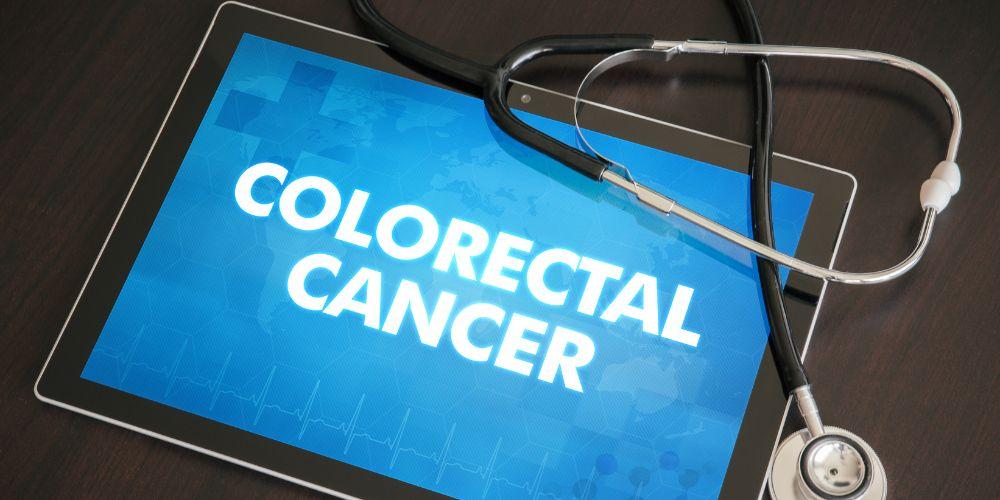
What Is Colon Cancer?
Colon cancer is a type of gastrointestinal cancer that affects the large intestine, also known as the colon. It is the third most common form of cancer in both men and women.
While it can be diagnosed at any age, it is usually seen more often in adults over 50, who have a higher risk of developing the illness.
Colon cancer is highly treatable when detected in its early stages. However, it may quickly spread to other organs if not caught soon enough.
While several treatment options are available for those with colon cancer, the course of action will depend on the stage at which it was diagnosed and other factors such as overall health and medical history.
Awareness of colon cancer’s signs and symptoms is crucial for early detection, which can significantly increase the chances of successful treatment.
Warning Signs and Symptoms of Colon Cancer
Taking the warning signs and symptoms of colon cancer seriously are important, as they can be easily dismissed or mistaken for other conditions.
Common warning signs to watch out for include changes in bowel habits, abdominal pain, unexplained fatigue, unexpected weight loss, and blood in the stool.
Changes in Bathroom Habits
Changes in bathroom habits and bowel functions are among the first signs and symptoms of colon cancer. Patients may experience an increase in diarrhea or constipation, or they may notice bright-red blood mixed with stool, known as rectal bleeding.
Additionally, patients may find that their stools have become narrower than usual. These changes can point to a potential cause of inflammation or even a tumor commonly found with colon cancer.
It is important to note that while any change in bowel habits should be discussed with a doctor, it doesn’t necessarily mean you have colon cancer. Other things such as infections, irritable bowel syndrome (IBS), diet, or age can also affect bowel habits.
Therefore, it’s essential to seek medical advice and undergo proper testing to ensure an accurate diagnosis without making assumptions about the state of your health.
Abdominal Pain
Abdominal pain is one of the most common signs and symptoms of colon cancer. It may be a subtle sensation that persists for a few weeks or something more extreme localized to one side of the abdomen.
The discomfort caused by abdominal pain can vary in frequency, intensity, and duration.
However, when it becomes severe or extremely persistent, it is a warning sign that should not be ignored.
Abdominal pain associated with colon cancer usually worsens over time as cancer grows or spreads inside the body.
Unexplained Weight Loss
Unexplained weight loss or fatigue can be another sign of colon cancer. Tumors consume calories and nutrients, leading to drastic reductions in weight.
Weight loss is defined as any unexpected decrease in body mass index (BMI) over time.
While it may be challenging to determine what is considered normal fluctuations in weight, medically speaking, unexplained weight changes should not be overlooked.
If a patient experiences a noticeable drop in BMI with no change in activity levels, dieting habits, or other potential explanations, it could be an indicator of a more significant health issue, specifically colon cancer.
Unexplained weight loss can also be accompanied by decreased appetite or a feeling of fullness after eating very little food.
Anemia and Fatigue
Anemia and Fatigue can also be signs of colon cancer in some cases. Anemia can have many causes, such as iron deficiency or hereditary hemolytic anemias.
While anemia has multiple causes, it should always be considered a possible sign of colon cancer. It is also essential to pay attention to any unusual fatigue you may be experiencing since this is also a symptom that could indicate colon cancer.
It is sometimes difficult to distinguish between typical tiredness due to everyday activities and extreme Fatigue that could indicate a serious illness.
Even if the cause of your Fatigue is unknown, it is a good idea to discuss it with your physician since persistent Fatigue can indicate serious medical issues, such as colon cancer.
Rectal Bleeding and Blood in the Stool
Rectal bleeding or blood in one’s stool is another common sign of colon cancer. Paying attention to this sign and discussing any blood in stool with your doctor is especially important. Blood in the stool can be seen as bright red, maroon, dark, or black in color.
Bright red blood is often associated with lower digestive issues, while darker colors—such as black or tarry-colored—can indicate more serious conditions, such as stomach ulcers or bleeding from higher up in the digestive system.
If there’s any amount of rectal bleeding present for two or more days and there’s no associated injury that could explain it, this could be a cause of concern and should be discussed with a professional.
It could also be indicative of something minor and treatable such as hemorrhoids. However, consulting a physician is essential to rule out other potential causes.
Gastrointestinal Infections
Gastrointestinal infections can also sometimes be a sign of colon cancer. Patients may experience vomiting, abdominal tenderness, pain, feeling generally ill, fever, and diarrhea. If any of these occur in combination with other symptoms, such as unexplained anemia or changes in bowel habits lasting more than two weeks, it is essential to talk to a doctor right away.
It is important to note that gastrointestinal infections are far more common than colon cancer and do not necessarily indicate the presence of something more serious.
However, it can be challenging to determine whether such gastrointestinal infections are caused by something benign or are indicative of intestinal cancer.
In some cases, even if typical colon cancer symptoms emerge, many people have no family history of colorectal cancer, so doctors would not consider it a possibility until further tests are done.
Thus, it is important for individuals to have regular medical examinations and tests to rule out the possibility of either a virus or something much more serious such as colon cancer.
Bloating and constipation
Finally, Bloating and constipation are two more common symptoms associated with colon cancer.
Bloating can be a feeling of fullness or tightness in the abdomen after eating small amounts. It may remain persistent throughout the day.
Constipation involves passing hard stool or not having movements at all for several days.
When encountered together, bloating and constipation could indicate an obstruction in the bowels due to a tumor or growth. If someone experiences these symptoms for longer than two weeks, they should seek medical attention.
Diagnosis and Testing for Colon Cancer
In conclusion, knowing the signs of colorectal cancer can be crucial in catching colorectal cancer early. The earlier colorectal cancer is detected, the more successful treatment options will be.
If you are experiencing any of the symptoms above, it is crucial to talk to your doctor and get tested for colorectal cancer.
Various screening options are available, including sigmoidoscopy, colonoscopy, fecal tests, and blood-based tests.
While some tests may be invasive and deter patients from getting screened, it’s essential to know that noninvasive options are available, such as BeScreened’s blood-based test. It is as simple as going to your local Any Lab Test now facility or visiting your doctor for an annual blood draw.
As individuals, it’s up to us to take charge of our health and ensure we get the screenings we need. Most people should begin getting tested for colorectal cancer at the age of 50. However, those with a family history or genetic risk factors may need to be screened earlier.
Don’t wait until it’s too late – get BeScreened’s Colorectal Screening kit and take the first step towards a healthier future.


